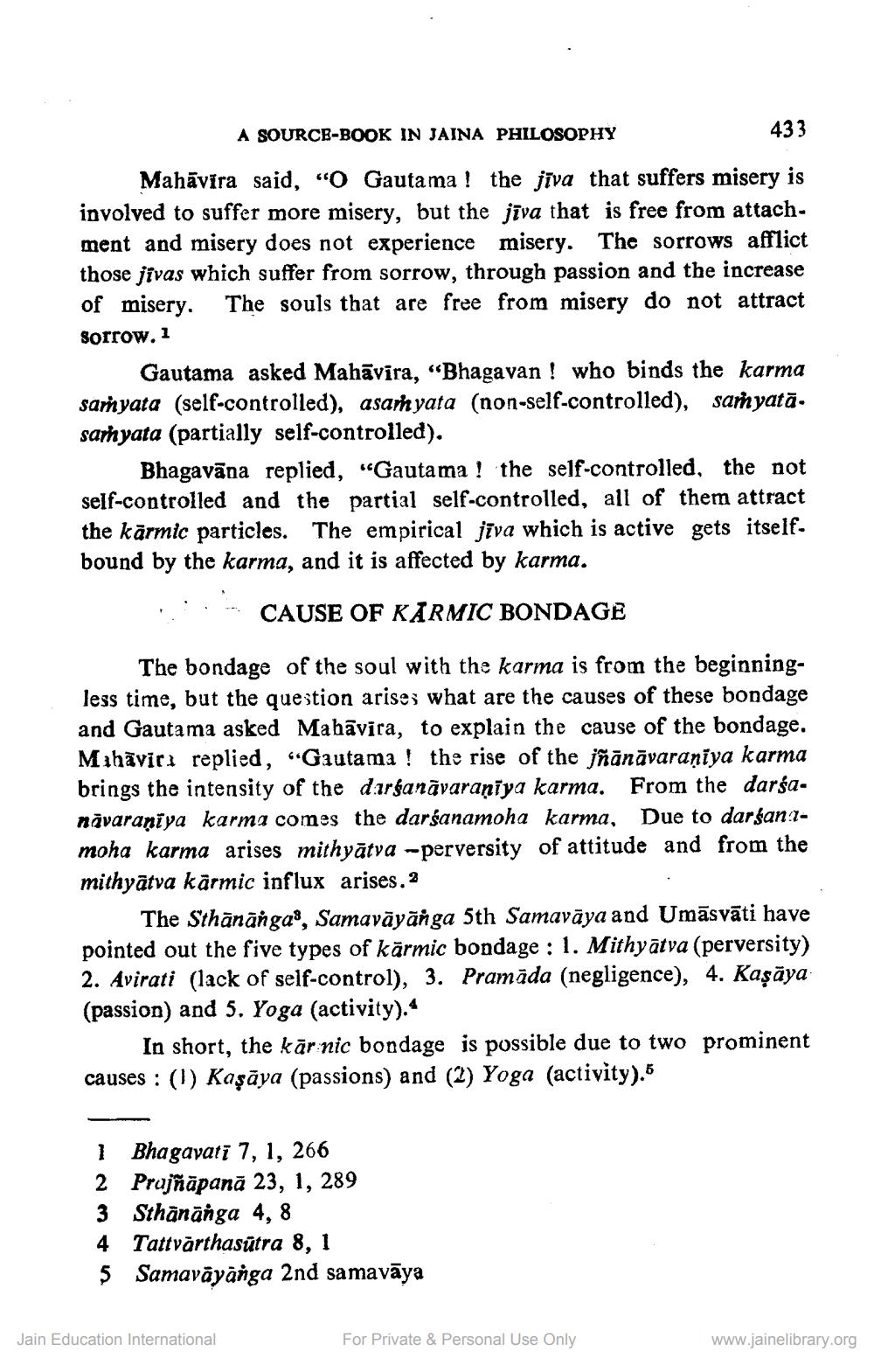________________
A SOURCE-BOOK IN JAINA PHILOSOPHY
433
Mahavira said, "O Gautama! the jiva that suffers misery is involved to suffer more misery, but the jiva that is free from attachment and misery does not experience misery. The sorrows afflict those jivas which suffer from sorrow, through passion and the increase of misery. The souls that are free from misery do not attract
sorrow. 1
Gautama asked Mahavira, "Bhagavan! who binds the karma samyata (self-controlled), asam yata (non-self-controlled), samyatā. samyata (partially self-controlled).
Bhagavana replied, "Gautama! the self-controlled, the not self-controlled and the partial self-controlled, all of them attract the karmic particles. The empirical jīva which is active gets itselfbound by the karma, and it is affected by karma.
CAUSE OF KARMIC BONDAGE
The bondage of the soul with the karma is from the beginningless time, but the question arises what are the causes of these bondage and Gautama asked Mahavira, to explain the cause of the bondage. Mahavir replied, "Gautama! the rise of the jñānāvaraṇīya karma brings the intensity of the darśanavaraniya karma. From the darśanavaraṇiya karma comes the darśanamoha karma, Due to darsanamoha karma arises mithyātva -perversity of attitude and from the mithyātva karmic influx arises. 2
The Sthānanga3, Samavāyānga 5th Samavaya and Umāsvāti have pointed out the five types of karmic bondage: 1. Mithyatva (perversity) 2. Avirati (lack of self-control), 3. Pramada (negligence), 4. Kaşaya (passion) and 5. Yoga (activity).4
In short, the kar nic bondage is possible due to two prominent causes (1) Kaşṣāya (passions) and (2) Yoga (activity).5
1 Bhagavati 7, 1, 266
2 Prajñāpanā 23, 1, 289
3 Sthānanga 4, 8
4 Tattvārthasutra 8, 1
5 Samavayanga 2nd samavāya
Jain Education International
For Private & Personal Use Only
www.jainelibrary.org




